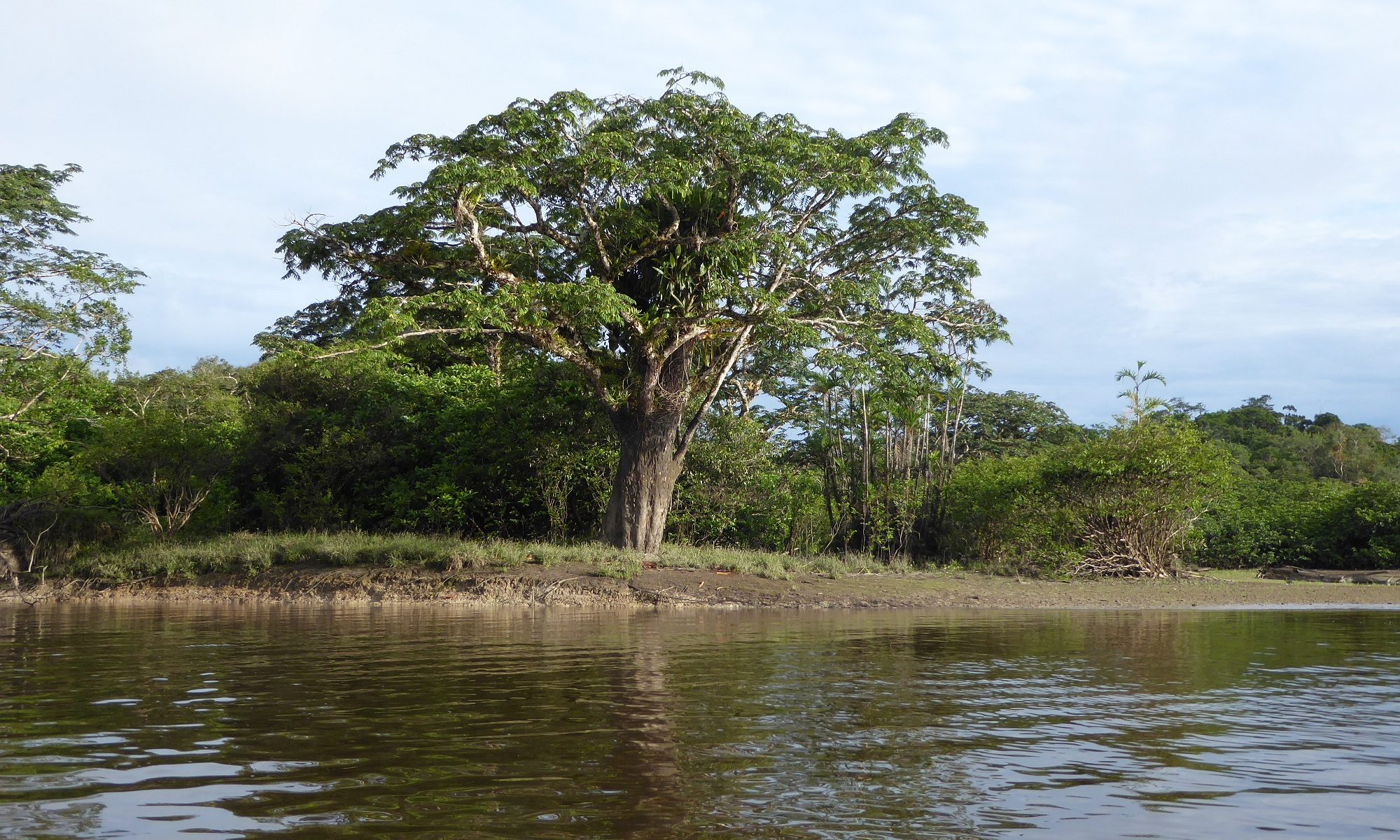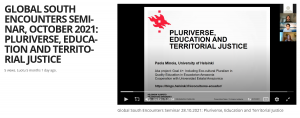HELSUS Global South Encounters has just released the video of our presentation (October 2021)
Abstract – The comprehensive development project manifested in the Sustainable Development Goals (SDG) proposes an overall engagement on “quality education for all” and supports social justice by promoting equal access to education for the most deprived groups. However, the SDG4 on quality education does not acknowledge diversity in ways of being (ontologies) and knowing (epistemologies) around the world and the need to support alternative ways to learn and produce knowledge. The role of education to achieve social and environmental justice is not new. At the institutional and international level, the debate around education has become central in the post-2015 development agenda, and within the territorial turn, education engenders and sustains projects with the potential to resist structural socio-environmental injustices and move toward more regenerative futures.
In this seminar, the panelists discuss how territorial justice and education offer paths toward the pluriverse by touching upon knowledge, politics and pedagogical visions, ecocultural identities, humilocene, socio-environmental consciousness, place-based education and community experiential calendars. The seminar connects with the Academy of Finland’s DEVELOP programme project “Goal 4+: Including Eco-cultural Pluralism in Quality Education in Ecuadorian Amazonia“.
Speakers
Paola Minoia is a Senior Lecturer in Global Development Studies at the University of Helsinki, and an Associate Professor in Political and Economic Geography at the University of Turin. Her research interests intersect the fields of political ecology and development studies with a focus on territoriality, state- and minoritized groups relations, socio-environmental justice, eco-cultural knowledges and the pluriverse. She is the Principal Investigator in the project Ecocultural pluralism in the Ecuadorian Amazonia (funded by the Academy of Finland 2018-2022) and a WG leader in the EU/COST Network Decolonising Development: Research, Teaching and Practice (2020-2024).
José Castro-Sotomayor PhD. is an Assistant Professor at California State University Channel Islands, U.S.A. He investigates ecocultural modes of human and more-than-human communication and how they influence our relationships with the Earth’s vitality. His work focuses on transversal forms of communication, agency, and dissent that inform participatory models for environmental peacebuilding and decision and policymaking. He is co-editor of The Routledge Handbook of Ecocultural Identity (2020), a transdisciplinary volume seeking to foster a radical epistemology by investigating ways ecocultural identities are being, and can be, thought, felt, performed, and experienced within wider sociopolitical structures in ways relevant to regenerative Earth futures. Originally from Ecuador, he worked as an independent consultant for environmental NGOs in Ecuador and Colombia.
Tuija Veintie is a postdoctoral researcher in Global Development Studies at the Faculty of Social Sciences, University of Helsinki, Finland. Her current research focuses on the integration of ecological and Indigenous knowledge in intercultural bilingual upper secondary education in Ecuador. Her study is part of a research project ‘Goal 4+: Including Eco-cultural Pluralism in Quality Education in Ecuadorian Amazonia’. Veintie has a multidisciplinary background in education, anthropology, and Latin American studies. She received her PhD degree in Educational Sciences from the University of Helsinki in 2018. Her research interests include social justice and diversity issues, epistemic power hierarchies, intercultural and Indigenous education as well as minority and Indigenous peoples’ rights.
Johanna Hohenthal is a postdoctoral researcher in Global Development Studies at the Faculty of Social Sciences, University of Helsinki. She has worked in a research project ‘Goal 4+: Including Eco-cultural Pluralism in Quality Education in Ecuadorian Amazonia’ that studies intercultural bilingual education and eco-cultural knowledges of the Amazonian Indigenous groups. Her interests focus on the accessibility of intercultural bilingual education and its relation to Indigenous territoriality and place-based learning as well as on participatory research methods. She received a PhD degree in Geography in 2018. Her doctoral research focused on water resource governance and local ecological knowledge in the Taita Hills, Kenya.
Chaitawat Boonjubun, chair of the event, is a postdoctoral researcher at Global Development Studies, the Faculty of Social Sciences, the University of Helsinki, Finland. His research interests focus on understanding the social, political, economic, and cultural determinants of sustainable urban land use, the discourses and practices of urban regeneration, the politics of public lands, urban informality, religious land, and inequalities in cities.

